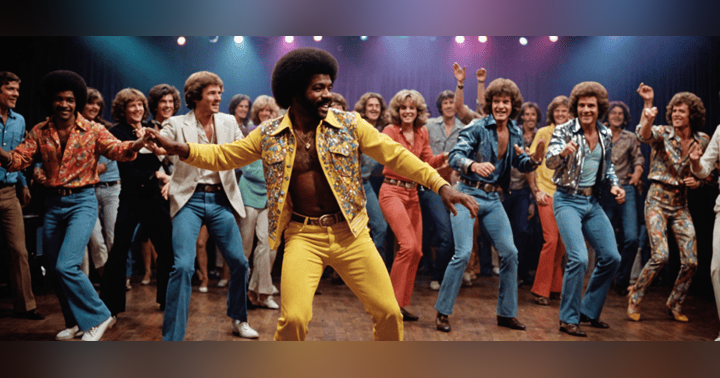Is It Me? Am I the Homophobe?
Many have heard the term internalized homophobia, but few fully understand it. It's often used to describe a gay man who seems sexually repressed or self-loathing. However, the concept delves much deeper than these surface-level observations.
Defining Internalized Homophobia
In 1998, Elon Meyer and Laura Dean defined internalized homophobia in their research article Internalized Homophobia, Intimacy, and Sexual Behavior Among Gay and Bisexual Men as the gay person's direction of negative social attitudes toward the self. In essence, it is when a gay person directs society's anti-gay prejudices inwardly, leading to self-directed negativity.
They explained that most gay people are raised by heterosexual parents and socialized in a straight world that often promotes anti-gay beliefs. This lack of exposure to supportive attitudes and role models within the family leads to the development of a stigmatized self-view.
Growing up in predominantly straight societies, many gay individuals hear negative stereotypes and slurs about LGBTQ+ people. Without affirmative role models or support groups, these negative beliefs can become internalized. This process is similar to the themes explored in The Velvet Rage, which focuses on the feelings of shame that arise from these untrue beliefs and stereotypes.
Internalized Homophobia's Manifestations
The effects of internalized homophobia can be profound. Individuals may consciously or unconsciously accept and internalize societal biases, leading to self-doubt and negative self-perceptions. For example, I grew up hearing the stereotype that all gay men have AIDS. This misinformation led to irrational fears about my own health before I even had any sexual contact.
It’s a prime example of how internalized homophobia can manifest as irrational fears and beliefs. These negative beliefs can persist even when an individual knows them to be untrue.
During the coming out process, internalized homophobia often intensifies. This can result in denial of one's sexual orientation, attempts to appear heterosexual, contempt for others in the LGBTQ+ community, and withdrawal from friends and family. These behaviors are linked to increased anxiety, depression, and shame, delaying or preventing individuals from coming out and living openly.
Long Term Impacts
For those who are openly gay, internalized homophobia can still have significant impacts, manifesting as lower self-acceptance and self-esteem. A 1996 study by Michael W. Ross and B.R. Simon Rosser identified four dimensions of internalized homophobia, which can influence various aspects of life:
- Public identification as gay
- Perception of the stigma associated with being homosexual
- Social comfort with gay men
- And moral and religious acceptability of being gay
Understandably, internalized homophobia can affect romantic relationships by decreasing relationship quality and satisfaction. Higher levels of internalized homophobia are linked to greater sexual depression, anxiety, image concerns, and lower sexual esteem and satisfaction. It can lead to avoidance of lasting relationships, seeking casual sex devoid of intimacy, and conflicts within relationships due to feelings of inferiority and unworthiness.
Overcoming Internalized Homophobia
While internalized homophobia can be deeply ingrained, it is not insurmountable. Fortunately, it’s seen as an early stage of a developmental process. As individuals come out and gain more experience within the gay community, they can move toward a healthier adjustment and lower levels of internalized homophobia.
Gay-affirmative can also play a crucial role in this journey, helping individuals achieve greater self-acceptance and adjustment. According to The Gay Therapy Center, some practical steps to combat internalized homophobia include:
- Finding supportive friends in the community: This may take time, but finding a sense of belonging is crucial for overcoming feelings of isolation.
- Treating others in the community well: Support and empower fellow LGBTQ+ individuals rather than perpetuating negativity.
- Dating kind people: Seek relationships that uplift and support you.
- Being kind to yourself: Practice self-compassion and avoid harsh self-criticism.
- Distancing from non-affirming family members: Protect yourself from constant criticism and negativity.
- Working with an LGBTQ+-affirming therapist or life coach: Professional support can provide valuable guidance and encouragement.
Self-Compassion and Positive Affirmations
Practicing self-compassion is essential in overcoming internalized homophobia because it fosters self-acceptance and counters the negative beliefs and stereotypes internalized from a heteronormative society. Psychology Today recommends practicing self-compassion by:
- Express self-love: Look in the mirror and say, "I love you." This simple affirmation can counteract negative self-talk.
- Speak kindly to yourself: Treat yourself with the same kindness and understanding you would offer a friend.
- Acknowledge your efforts: Recognize and appreciate the steps you take to care for yourself, whether it's exercising, eating healthily, or taking time to relax.
- Assess your needs: Regularly check in with yourself to understand what you need, whether it's rest, relaxation, or emotional support.
Moving On from Internalized Homophobia
Overcoming internalized homophobia is a challenging but essential process for living authentically and happily. By acknowledging and addressing these ingrained negative beliefs, we can work toward a healthier, more fulfilling life. Striving to be your authentic self not only improves individual well-being but also uplifts the entire LGBTQ+ community.
And remember. Every day is all we have, so you've got to make your own happiness.
For more information on this topic, listen to Episode 11. Overcoming Internalized Homophobia.
Tune into your favorite podcast player every Tuesday for new episodes of A Jaded Gay.


















